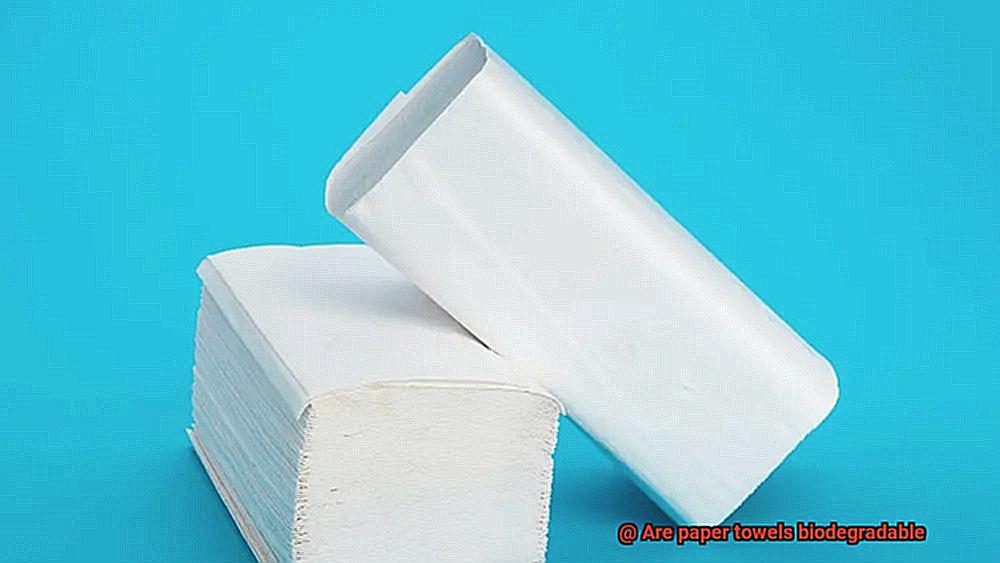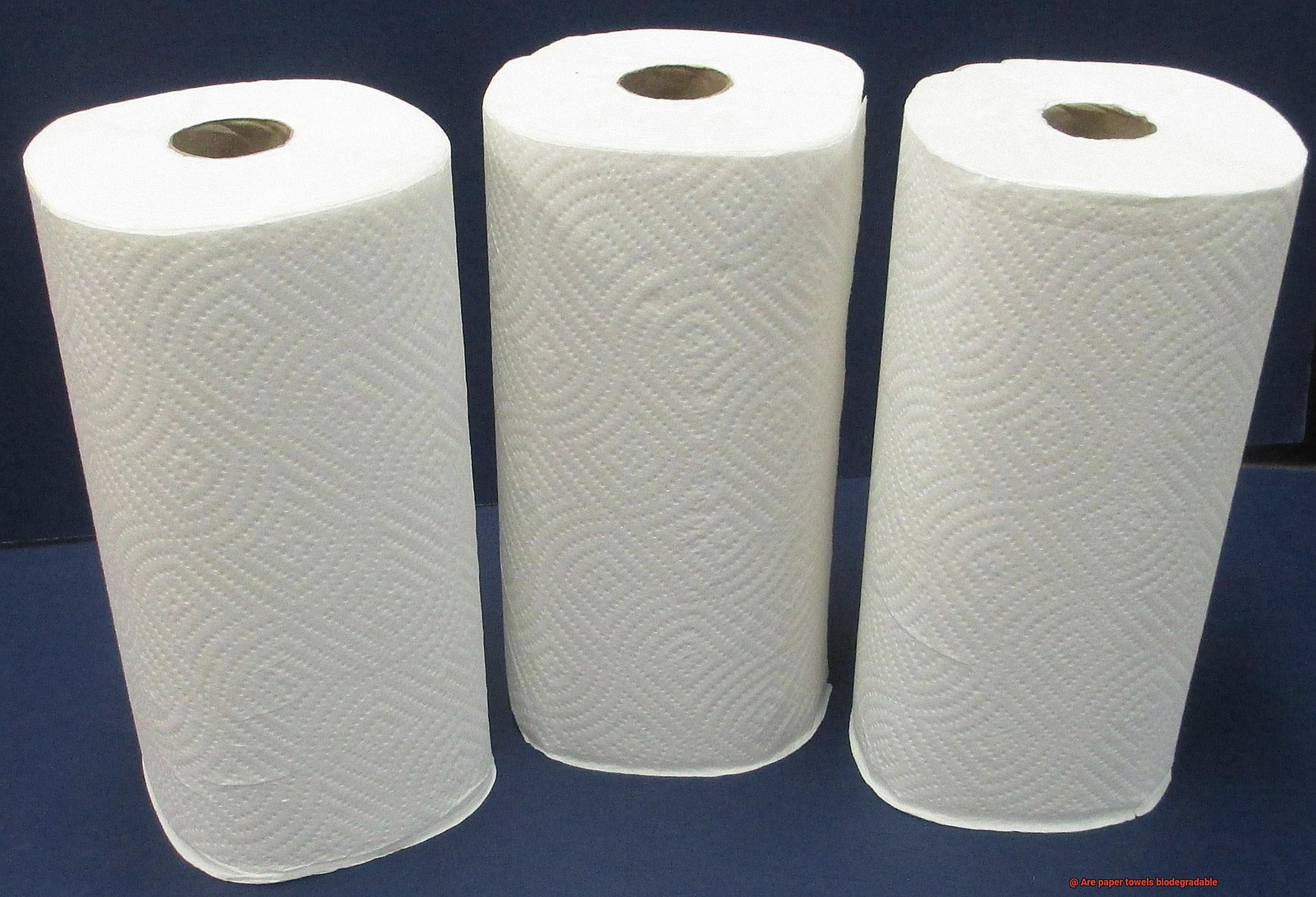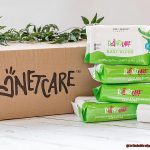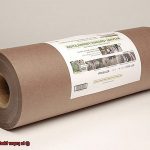Imagine this scenario: you’re in your kitchen, cooking up a storm and accidentally spill something. You quickly reach for a paper towel to wipe it up, but have you ever thought about what happens to that paper towel once you toss it away? Are paper towels biodegradable? Can they decompose and return to nature, or do they just sit in landfills for years on end?
In today’s world, we’re all more environmentally conscious. We recycle, use reusable bags, and try to reduce our energy consumption. But what about those everyday items that we take for granted – like paper towels? The truth is that the answer to whether paper towels are biodegradable isn’t as simple as yes or no.
Multiple factors determine whether a particular paper towel will break down or not. From the type of pulp used in production to the manufacturing process and disposal methods, there are many variables at play. In this post, we’ll dive deeper into the question of whether paper towels are biodegradable and offer tips on how you can make eco-friendly choices when using them.
So grab your favorite beverage and get ready to learn about the lifecycle of your everyday paper towel.
Are Paper Towels Biodegradable?
Contents
As a household item that’s widely used for cleaning spills or drying hands, paper towels have become a growing environmental concern. So, are paper towels biodegradable? Well, it’s not as simple as it seems.
As an expert in this field, I can tell you that the answer depends on various factors, such as the type of paper towel and the conditions it is exposed to. Generally speaking, paper towels made from virgin pulp or recycled fibers are biodegradable, but those treated with chemicals or plastic coatings may not break down easily.
When paper towels end up in landfills, they can take years to decompose due to the lack of oxygen and moisture necessary for biodegradation. However, composting them in a controlled environment such as a commercial composting facility or a backyard compost bin can break them down within weeks or months.
But even if paper towels are biodegradable, their production process requires a significant amount of energy and water. Trees must be cut down, turned into wood pulp, bleached with chlorine, and treated with chemicals to improve strength and absorbency. This process contributes to greenhouse gas emissions and water pollution.
So what can we do to minimize the environmental impact of paper towels? One solution is to choose eco-friendly options made from recycled materials and free from harmful chemicals. Some companies offer compostable paper towels that can break down in composting facilities within a few months.
However, it’s important to remember that even biodegradable paper towels may not be the most sustainable option. Reusable cloth towels or air dryers are excellent alternatives that don’t require cutting down trees or creating waste.
In conclusion, while some paper towels are biodegradable, it’s crucial to consider their full lifecycle and explore alternative options. As consumers, we have the power to make conscious choices that contribute to a sustainable future.
Environmental Impact of Paper Towels
Paper towels are a household staple that we often take for granted, but their impact on the environment is significant. The production of paper towels involves cutting down trees, pulping them, and using energy-intensive processes to create the final product. This results in greenhouse gas emissions and contributes to deforestation – a major environmental issue.
Unfortunately, the problems don’t stop there. When paper towels are thrown away, they often end up in landfills where they do not biodegrade easily due to their compact nature. As they break down, they release methane – a potent greenhouse gas – which contributes to climate change. If incinerated, paper towels emit harmful pollutants into the air, posing a threat to human health and the environment.

While some brands use recycled materials or sustainable sources of fiber, these efforts alone cannot fully address the environmental impact of paper towels. That’s why it’s important to consider alternatives such as reusable cloth towels or hand dryers that significantly reduce waste and support sustainable living.
By making small changes in our daily lives, we can contribute to a more sustainable future and protect the environment for generations to come. Choosing eco-friendly paper towel options or switching to reusable cloth towels may seem like a small step, but it can make a big difference in reducing our carbon footprint and protecting our planet.
Eco-Friendly Alternatives to Paper Towels
Look no further. There are several options available that can help reduce waste and promote sustainable living.
One popular alternative is the use of cloth towels and napkins. These can be made from a variety of materials such as cotton, bamboo, or linen, and come in different colors and designs to match any home decor. Not only are they reusable and washable, but they also eliminate the need for constantly buying single-use paper towels. Plus, they add a touch of elegance to any kitchen or dining room.
Another option is the use of biodegradable and compostable paper towels. These towels are made from plant-based materials such as bamboo or sugarcane, which break down easily in compost or landfill environments. Some brands even offer recycled paper towels, which are made from post-consumer waste and help reduce the demand for virgin wood pulp. So, you can still enjoy the convenience of paper towels without harming the environment.
For those who prefer a more hands-on approach, DIY options such as knitted dishcloths or crocheted washcloths can be a fun and sustainable project. These can be made from scrap yarn or old t-shirts, making them a low-cost and eco-friendly alternative to single-use paper towels. Plus, they make great gifts for friends and family.
Ultimately, the key to finding eco-friendly alternatives to paper towels is to prioritize sustainability and consider the environmental impact of our daily choices. By making small changes in our household habits, we can all play a part in reducing waste and promoting a healthier planet for future generations. So, whether you choose cloth towels, biodegradable paper towels, or DIY options, remember that every little bit helps when it comes to protecting our planet.
Production Process of Paper Towels
The production of paper towels involves several steps, starting with the collection and processing of raw materials, such as wood chips, recycled paper, and pulp. The wood chips are transformed into pulp, which is then mixed with water and chemicals to create a slurry.
This slurry is then poured onto a moving screen where water is extracted to form a wet sheet. The sheet is then pressed and dried to create the final product. Throughout the production process, absorbent chemicals like sodium polyacrylate may be added to enhance the paper towel’s absorbency.
It’s important to note that although paper towels are made from natural materials, they may not be biodegradable. Many are treated with chemicals that make them resistant to biodegradation, and they may also be contaminated with food or other materials that further prevent decomposition.
To ensure that paper towels are biodegradable, it’s crucial to choose products manufactured using sustainable practices and free from harmful chemicals. Fortunately, various companies now produce eco-friendly paper towels made from recycled materials and without any harmful additives. These products are designed to break down quickly and efficiently in landfills and composting environments.
In conclusion, understanding the production process of paper towels can provide valuable insight into their biodegradability and environmental impact. By choosing sustainable products and appropriately disposing of used paper towels, we can help reduce waste and promote a more sustainable future.
The Chemicals Used in Paper Towel Manufacturing
One of the primary chemicals used in paper towel manufacturing is chlorine bleach. This powerful whitening agent is used to remove impurities from the pulp and give the final product its bright white color. However, chlorine bleach can release dioxins, which are highly toxic and can accumulate in the environment, causing harm to both wildlife and humans.
Formaldehyde is another common chemical used in paper towel manufacturing. It’s added as a bonding agent to make the paper stronger and more durable. Unfortunately, formaldehyde is a known carcinogen that can cause health problems if ingested or inhaled.
In addition to these chemicals, adhesives, dyes, and fragrances are also used in paper towel manufacturing. Adhesives help bond different layers of paper together, while dyes and fragrances enhance the aesthetic appeal of the product. However, these chemicals can also have negative environmental impacts and can affect biodegradability.
All these chemicals mean that even though paper towels are made from biodegradable materials like wood pulp, their ability to break down naturally in the environment may be hindered. This could lead to environmental pollution if they’re not disposed of properly.
As consumers, we can take steps to reduce our impact on the environment. Choosing eco-friendly options made from recycled materials without harmful additives can help promote sustainability. When disposing of paper towels, composting them if possible or disposing of them properly in the trash is important.
Compostable and Recycled Paper Towels
Compostable and recycled paper towels are a great place to start. As an expert in eco-friendly products, I can tell you that these types of paper towels have become increasingly popular in recent years as people have become more conscious of their environmental footprint.
Compostable paper towels are made from renewable materials such as bamboo, sugarcane, or wheat straw. These materials break down quickly in a compost pile or landfill, reducing the amount of waste that ends up in landfills. Plus, they are made from renewable resources, which means they can be harvested without depleting the environment’s resources. However, it’s essential to note that not all compostable paper towels are created equal – some may require specific conditions to break down correctly. To ensure proper disposal, make sure to read the packaging carefully and follow instructions.
Recycled paper towels, on the other hand, are made from post-consumer waste. This means they’re created from materials that have already been used and then processed to create a new product. These towels help reduce the amount of waste that ends up in landfills and conserve resources by reducing the need for virgin pulp. However, it’s important to note that recycled paper towels may not be as strong or absorbent as non-recycled ones. Therefore, it’s crucial to choose a brand that meets your specific needs.
Overall, both compostable and recycled paper towels offer a more eco-friendly alternative to traditional paper towels. By choosing these products, you can help reduce your impact on the environment while still enjoying the convenience of disposable paper products.
So next time you’re shopping for paper towels, consider compostable or recycled options. Every time you choose an eco-friendly paper towel over a traditional one, you’re making a difference.
oaCd52OCKds” >
Conclusion
As we become more environmentally aware, it’s important to consider the impact of everyday items like paper towels. While the answer to whether they are biodegradable isn’t straightforward, there are ways to make eco-friendly choices.
The type of pulp used, manufacturing process, and disposal methods all affect a paper towel’s ability to break down. Generally, those made from virgin pulp or recycled fibers are biodegradable, but those treated with chemicals or plastic coatings may not be.
Unfortunately, paper towel production contributes to deforestation and greenhouse gas emissions. When disposed of in landfills, they can take years to decompose due to lack of oxygen and moisture.
To minimize the environmental impact of paper towels, choose eco-friendly options made from recycled materials and free from harmful chemicals. Some companies offer compostable paper towels that break down in composting facilities within months. However, even biodegradable paper towels may not be the most sustainable option.
Small changes such as using reusable cloth towels or air dryers instead of single-use paper towels can help reduce our carbon footprint.





